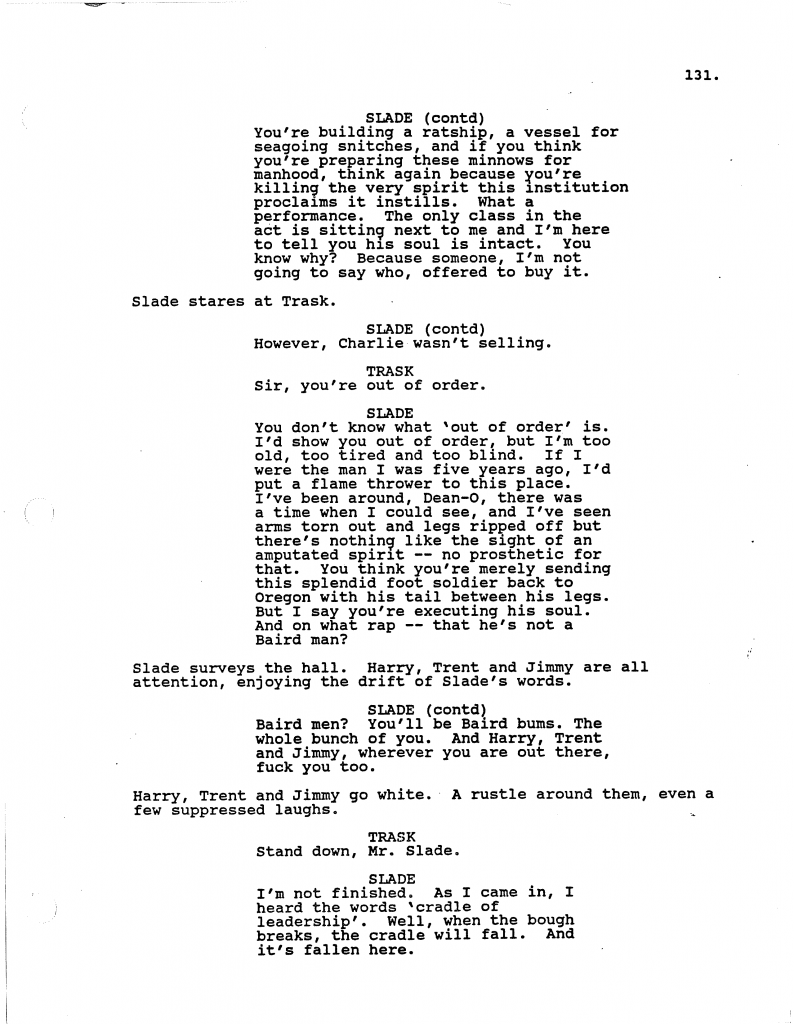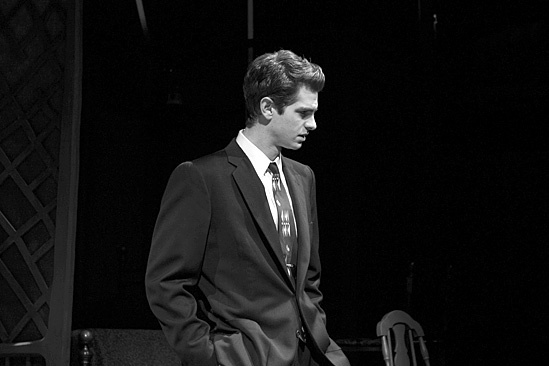
Willy complains to Linda that their son, Biff, has yet to do something with his life. Worried over Willy's state of mind and recent car accident, his wife Linda suggests that he ask his boss, Howard, to allow him to work in his home city so he will not have to travel. Willy Loman returns home exhausted after a cancelled business trip. The setting is the Loman home in Brooklyn, located amidst a typical row of urban apartment buildings. Miller was himself the model of the young Bernard. In creating Willy and the other characters, Miller also drew on his relationship with his father as well as another salesman. Miller sought to "do a play without any transitions at all, dialogue that would simply leap from bone to bone of a skeleton that would not for an instant cease being added to, an organism as strictly economic as a leaf, as trim as an ant." He also had new interest in the simultaneousness of the past and present that was evident at their meeting, as it was plain that he and his cousins were viewed by Manny as they were when they were adolescents, many years earlier.

Miller had been thinking about a play about a salesman for years. Learning that transformed Manny, in Miller's mind, to "a man with a purpose." One of Manny's sons told Miller that Manny had always wanted to create a business for his two sons. Miller later recounted that when he saw Manny at the theater, "I could see the grim hotel room behind him, the long trip up from New York in his little car, the hopeless hope of the day's business." Without acknowledging Miller's greeting or congratulating him on the play, Manny said "Buddy is doing very well.'" Buddy was Manny's son, and Manny saw Miller and his older brother as "running neck and neck" with his two sons "in some race that never stopped in his mind." When visiting Manny as a youth, Miller felt "gangling and unhandsome" and usually heard "some kind of insinuation of my entire life's probable failure." Seeing him again in Boston, Manny seemed to the playwright to be "so absurd, so completely isolated from the ordinary laws of gravity, so elaborate in his fantastic inventions," yet so much in love with fame and fortune that "he possessed my imagination." Manny committed suicide soon after, which was the cause of death of two other salesmen Miller had known.

Writing in a critical study of the play, author Brenda Murphy observed that Manny "lodged in his imagination and created a dramatic problem that he felt compelled to solve." The genesis of the play was a chance encounter between Miller and his uncle Manny Newman, a salesman, whom he met in 1947 in the lobby of a Boston theater that was playing All My Sons. In 1999, New Yorker drama critic John Lahr said that with 11 million copies sold, it was "probably the most successful modern play ever published." Background It has been adapted for the cinema on ten occasions, including a 1951 version by screenwriter Stanley Roberts, starring Fredric March. Since its premiere, the play has been revived on Broadway five times, winning three Tony Awards for Best Revival. The play was selected as one of the best plays of 1948–1949, with an excerpted version published in The Burns Mantle Best Plays of 1948–1949. It is considered by some critics to be one of the greatest plays of the 20th century.

It won the 1949 Pulitzer Prize for Drama and Tony Award for Best Play. The play addresses a variety of themes, such as the American Dream, the anatomy of truth, and infidelity. It is a two-act tragedy set in late 1940s Brooklyn told through a montage of memories, dreams, and arguments of the protagonist Willy Loman, a travelling salesman who is despondent with his life and appears to be slipping into senility. The play premiered on Broadway in February 1949, running for 742 performances. Late 1940s Willy Loman's house New York City and Barnaby River Bostonĭeath of a Salesman is a 1949 stage play written by American playwright Arthur Miller.


 0 kommentar(er)
0 kommentar(er)
